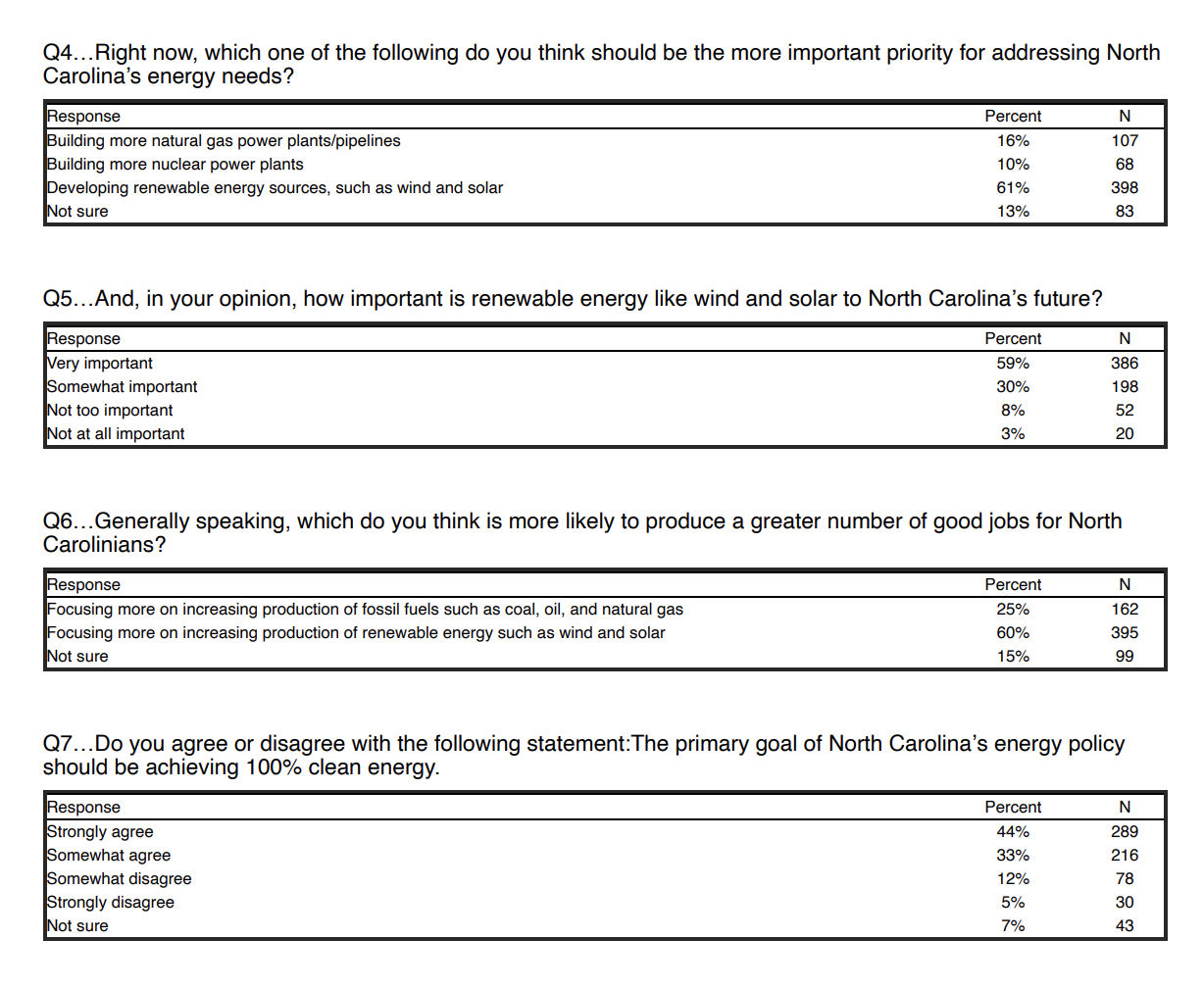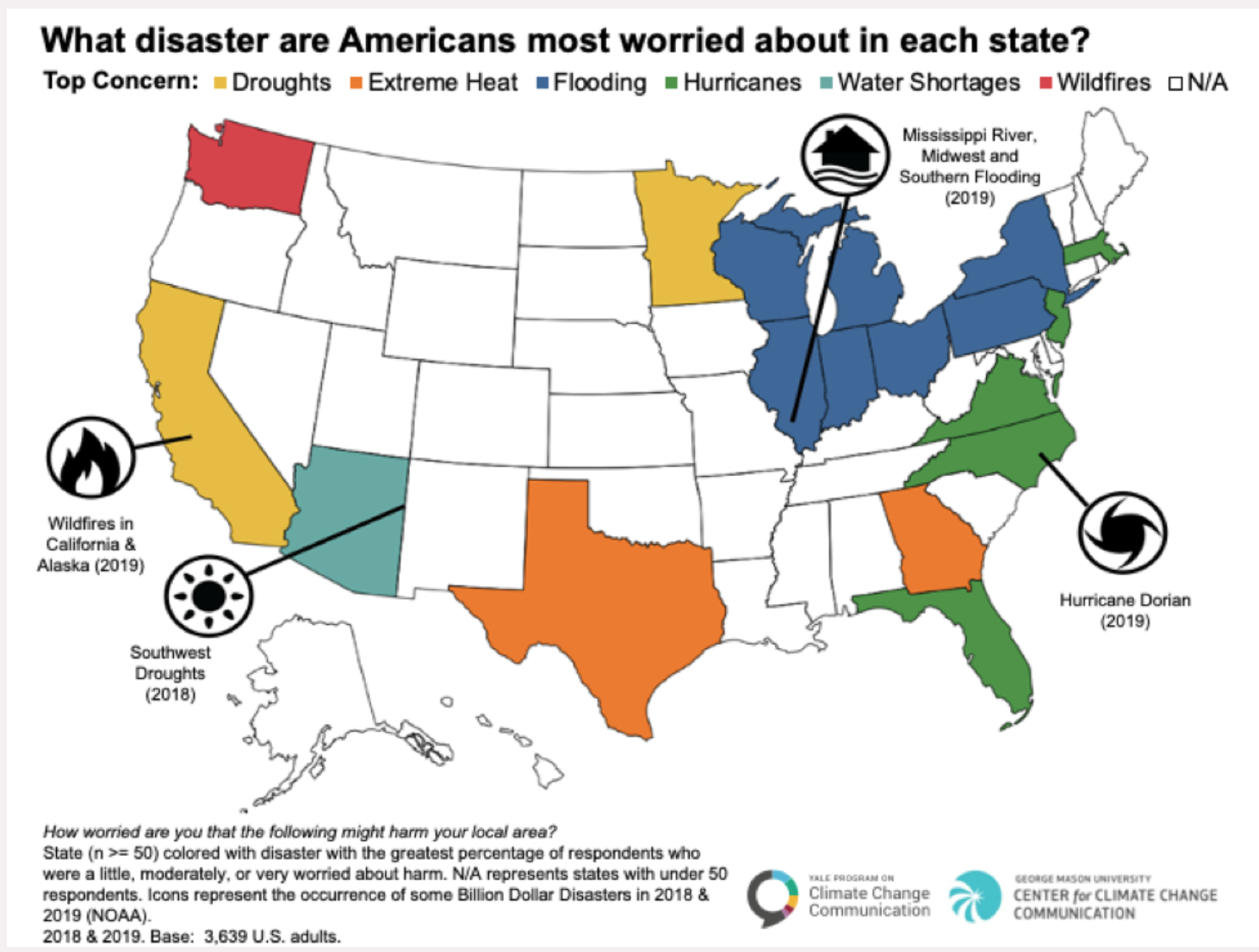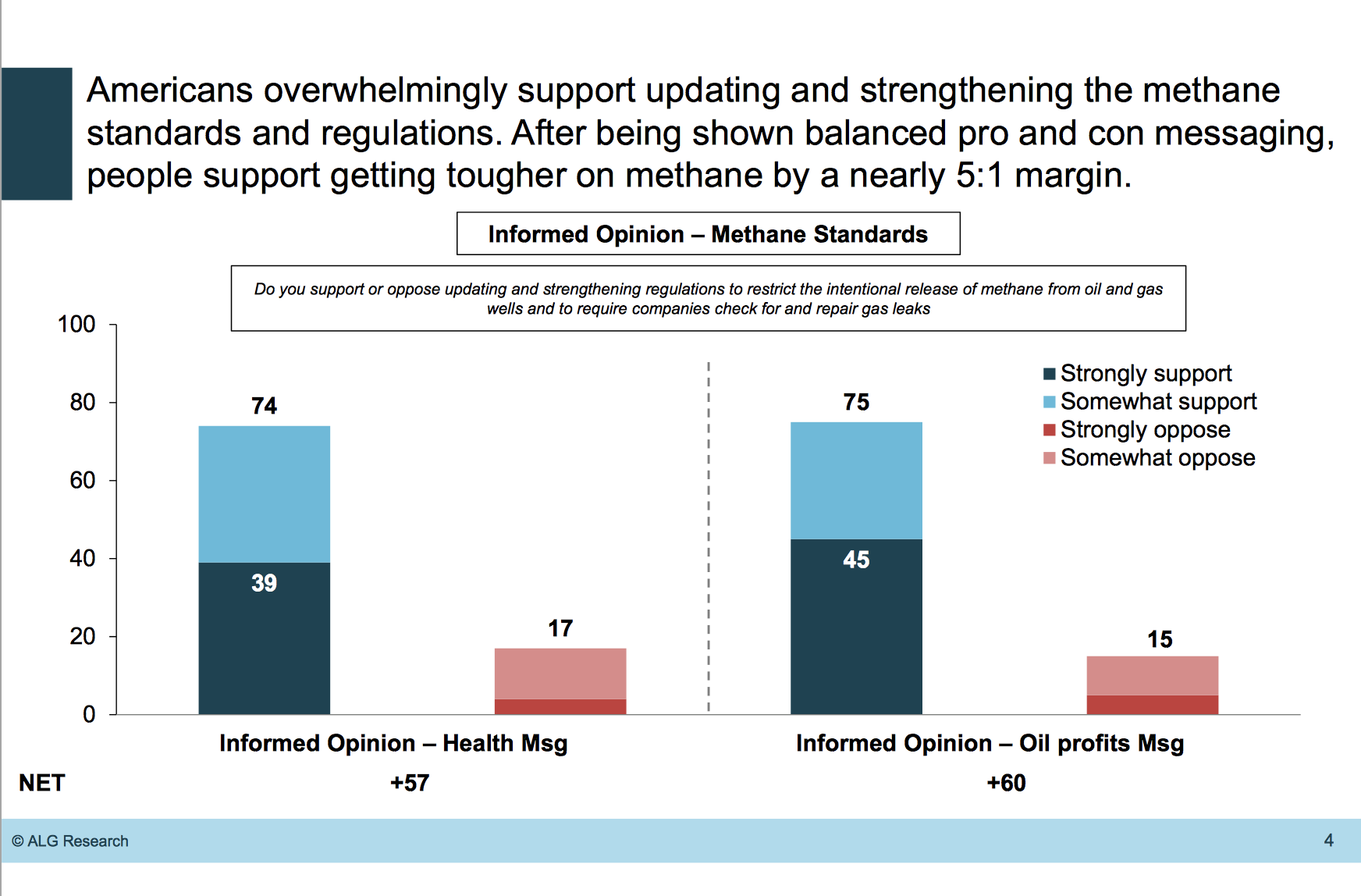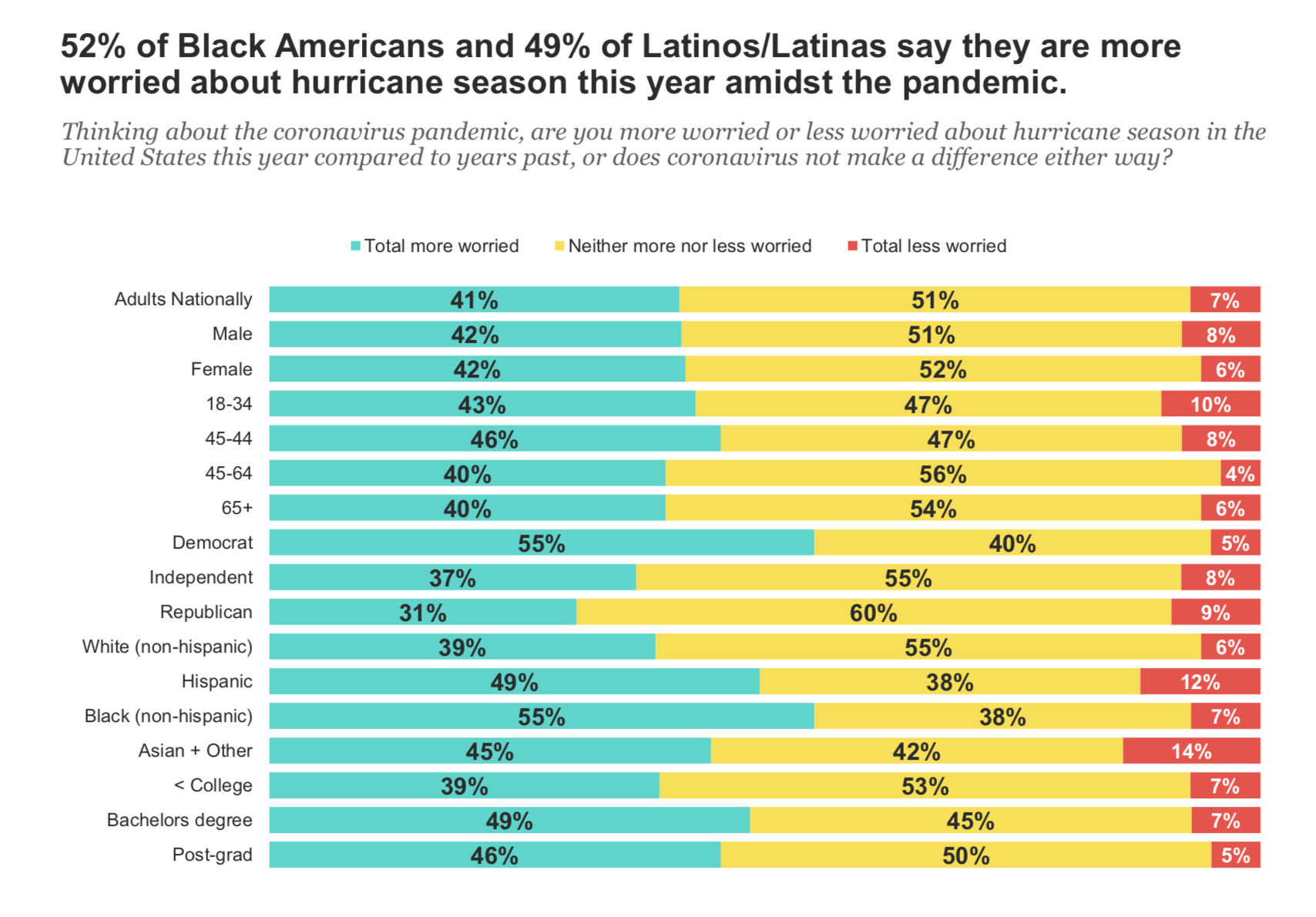Resources
Search below for resources covering the intersection of climate engagement, social science and data analytics.
RESULTS
Poll: Rural voters may be swingable
While partisanship remains strong among the rural electorate, more than one-third (37%) of rural voters appear "swingable" in future elections, depending on resonant policy proposals and messaging. Three messaging points — lowering prices; bringing good-paying jobs to local communities; and a populist message focused on corporate greed — received such broad support that they rivaled voters’ agreement on core values like family and freedom. Read additional analysis in the Daily Yonder's coverage.
Poll: Most NC Voters Support Wind Energy
77% of North Carolinians think the primary goal of the state’s energy policy should be achieving 100% clean energy and a majority (33% strongly; 38% somewhat) support the development of offshore wind farms. 70% of voters polled also believe the buildout of offshore wind along North Carolina’s coast would have a positive impact on jobs, the state’s economy, air quality and climate change.
How does the American public perceive climate disasters?
Different parts of the country see various kinds of extreme weather as most concerning, perceptions which are largely in line with actual major disasters that have occurred in those regions. This report provides concern profiles for the 18 largest states, drawing on survey data from 2018 and 2019. Over half of Americans see such extreme weather events posting a high or moderate risk to their community in the coming decade, and two thirds see a climate link to US weather (though only a third think climate affects our weather "a lot").
Poll: Public backs strong limits on methane pollution
Americans overwhelmingly support updating and strengthening the methane standards and regulations. Even after being shown balanced pro and con messaging, people support touger methane regulations by a nearly 5:1 margin. Curtailing leaks and releases of methane has broad support across all major demographics, including 2-to-1 support among Republicans.
Poll: In time of COVID, two-thirds of Americans want climate action
Americans are worried about "triple threat" of hurricanes, COVID, & climate change. 52% of Black Americans and 49% of Latinos/Latinas say they are more worried about hurricane season this year amidst the pandemic. Half of adults in southeastern coastal states say they are more worried about hurricane season this year and 66% say addressing climate change should be a priority.
State energy profile
Poll: Millennials care about climate change
Millennials are broadly convinced human-induced climate change is real and deserves action, but millennial Republicans are relatively less concerned. 88% of millennials believe climate change is happening and 62% believe it is being driven by human activity. 69% think climate change will affect them in their lifetimes. 57% of millennials think the U.S. is headed in the wrong direction or is on the wrong track in addressing climate change.
Battleground Millennial Survey
75% of millennials say they would be more likely to vote for a candidate who wants to transition the U.S. from fossil fuels to clean energy, but 44% of millennials do not see a difference between Clinton and Trump on this issue. 44% also prefer Clinton’s views on transitioning to clean energy; only 12% prefer Trump’s.



